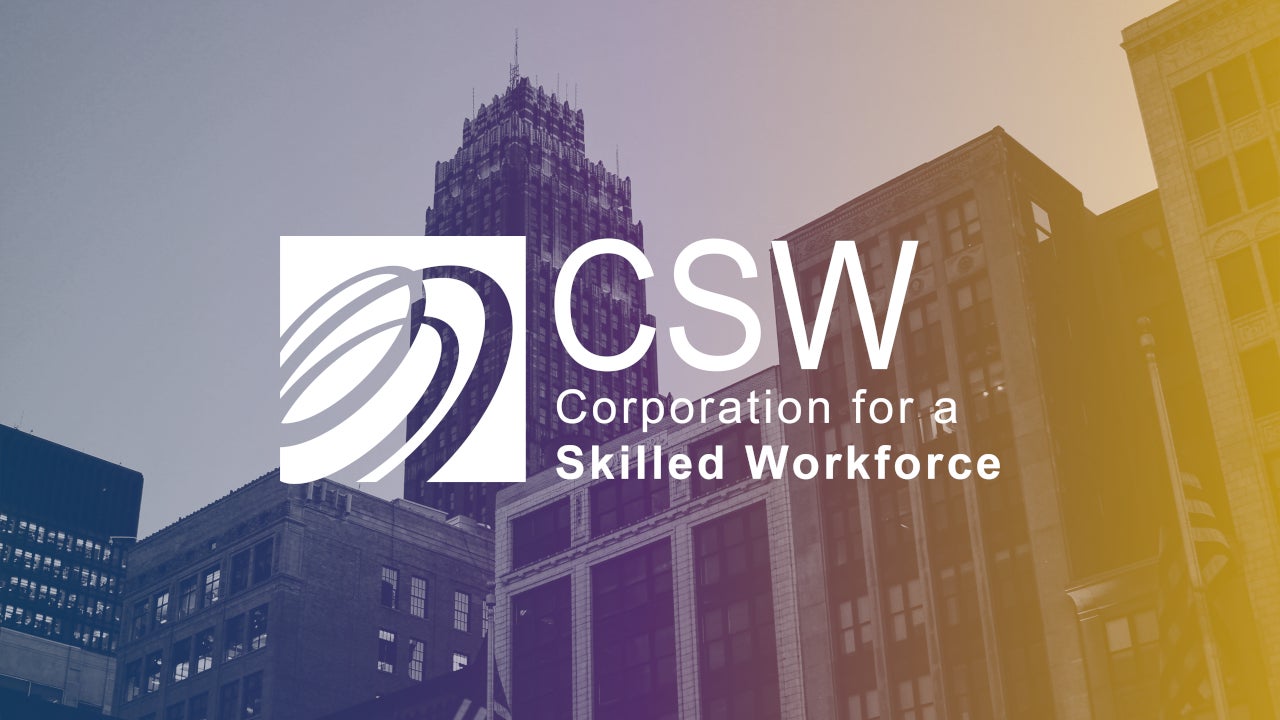Workforce Leadership Academy Partner Profile: Centering Worker and Learner Voice in Southeast Michigan


In 2023, Corporation for a Skilled Workforce (CSW), a national workforce policy nonprofit, was one of eight partners selected by the Aspen Institute Economic Opportunities Program to deliver a Workforce Leadership Academy (WLA). Through generous funding to CSW from The Ballmer Group and with additional support to the Institute from Walmart, The Harry and Jeanette Weinberg Foundation, and The Ralph C. Wilson, Jr. Foundation, the Southeast Michigan Workforce Leadership Academy brought together leaders from across the region’s workforce ecosystem for a year-long series of retreats, workshops, and action learning projects. The Academy provides a forum for leaders to work collaboratively to identify local and regional systems-based challenges and to develop shared solutions. Fellows work with leading practitioners throughout the country as they deepen networks, strengthen systems leadership skills, apply race, equity, and systems change frameworks to their work, and increase understanding of effective strategies and programs.
“I’m more than a number,” guest faculty Marwa Berro declared, as she addressed the Fellows. “It is critical that you remember that when you return to the programs that you lead.” This message concluded the Southeast Michigan Workforce Leadership Academy’s September workshop, “Metrics and Meaning: Measuring What Matters,” which was notable in that it enlisted active workforce development program participants as guest faculty. Project leads from CSW wove the importance of worker and learner voice to effective program design and evaluation throughout discussions and workshops. For example, in the “Sharing the Power, Sharing the Solution” workshop, guest faculty Susan Buckey from JVS Boston and Liz Ramon from Capital IDEA in Austin, Texas, both alumni of the Aspen Institute’s Sector Skills Academy, shared strategies to center worker/learner voices in advocacy, strategic decision-making, and continuous improvement processes.
Over the course of their fellowship, 21 Southeast Michigan workforce development professionals explored a variety of strategies that strengthened their understanding and ability to center worker voice in their organization’s policies and programs, including:
The focus on integrating worker/learner voice into the workshop should come as no surprise to those familiar with CSW. Centering the voices of those impacted is a shared value at CSW, most recently explored in the Worker-Centered Benchmarking Project, a research project co-designed and led by workforce development participants. Although this idea had been the subject of key position reports published by southeast Michigan organizations — including “Centering Community Voice: A Blueprint for Incorporating Lived Experience into the Grantmaking Process” (Detroit Future City) and “Detroit Workers and Job Seekers Speak” (Detroit Employment Equity Learning and Action Collaborative) — the idea of centering the voices of workers in research, program design, and workforce leadership was still not yet fully embedded in most of the region’s workforce system. This was about to change.
As part of their Collaborative Learning Lab (CoLab) capstone projects to develop systems change recommendations for the workforce ecosystem, Fellows made it a priority to listen to worker and job seeker voice first, before conducting literature reviews, compiling labor market data, and interviewing regional and national workforce, labor, and educational leaders. Three of the four CoLab groups tested their assumptions of the problem they were trying to solve by surveying, interviewing, and conducting focus groups with unemployed and underemployed residents of southeast Michigan, all of whom were compensated for their time and expertise. The impact was evident, with three of four groups including data and quotes from their own community survey and listening session research during their capstone presentations to 75 regional sector leaders and stakeholders.
The impact of this approach to the academy led Fellows to make immediate, actionable differences, like:
Senior Policy Associate, Improving Practices & Outcomes, Corporation for a Skilled Workforce
Alex Breen is a Senior Policy Associate on the Improving Practices and Outcomes team, where he leads the Detroit Region Workforce Leadership Academy and the Worker-Centered Benchmarking Project and supports the Workforce Benchmarking Network. Alex’s other projects include evaluation of CAEL’s Build Better Careers Initiative, strategy research for the City of Detroit and Oakland County, and working closely with the Michigan Justice Fund.
Alex has extensive experience in workforce development, including managing, scaling, and implementing holistic workforce programming at community-based organizations and intermediaries.
Prior to CSW, Alex was the Director of Growth and Innovation at the Stanley M Isaacs Neighborhood Center in East Harlem. There, he oversaw program development, monitoring and evaluation, and sectoral employment programming. In his two years, Alex raised more than $1.65 million for the organization’s workforce development and community health programs.
Alex is an alumnus of CORO’s Workforce Systems Leadership Program. He resides in the Bronx.

Student loans often follow borrowers for years, sometimes decades. Even people who fully understand how much they borrowed can feel...

It was a busy week for RIA aggregators. There were a few large moves, including $235 billion multi-family office Cresset...

Blog Posts Archives UnfavoriteFavorite February 27, 2026 Weave: The Social Fabric Project Subscribe to Weave’s Newsletter This story was originally...